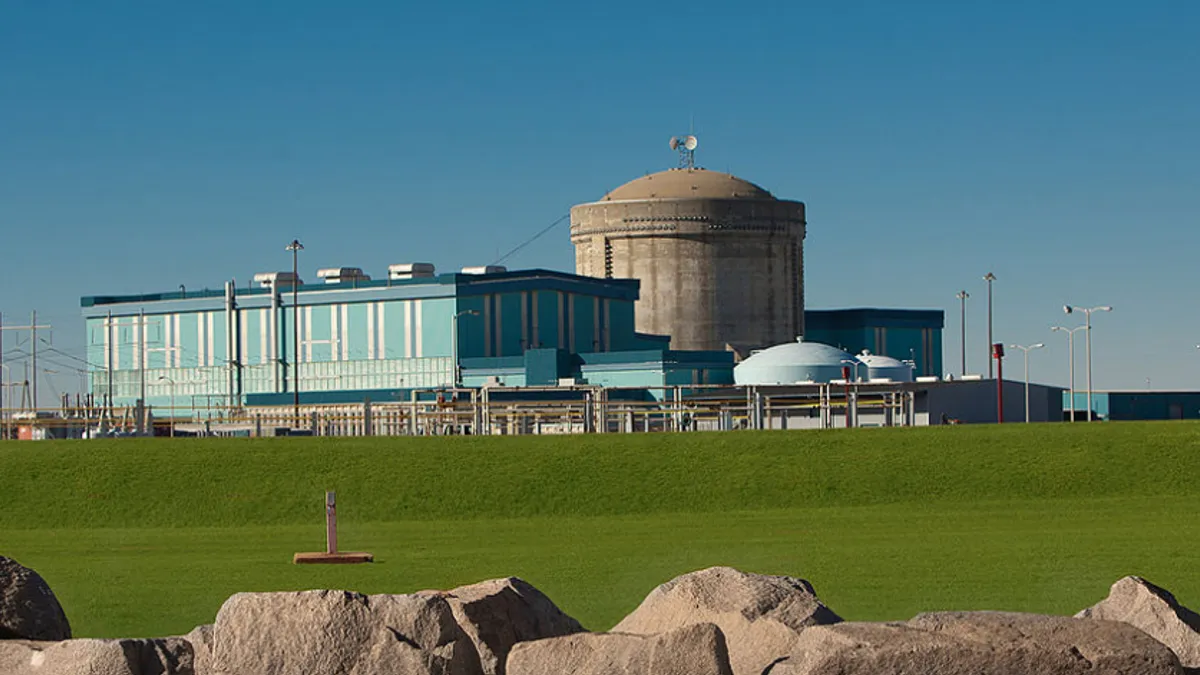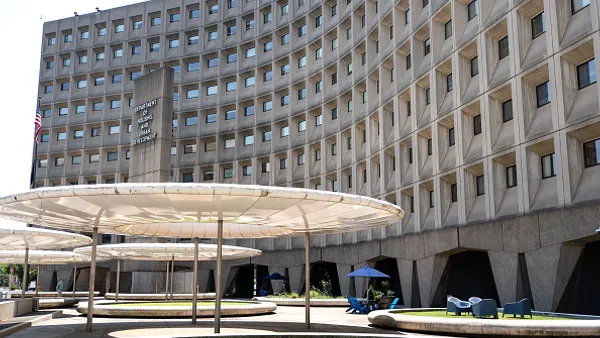Dive Brief:
- A unanimous three-judge panel of the 4th U.S. Circuit Court of Appeals ruled last month that 4,000 workers employed by Fluor did not need advance notice before losing their jobs after construction at a nuclear power site was abruptly shut down by South Carolina utility SCANA Corp. in 2017.
- The judges said that SCANA Corp. was not the workers' employer under the Worker Adjustment and Retraining Notification (WARN) Act because it did not control the contractor, which was Fluor. WARN, administered by the Department of Labor, helps ensure advance notice in cases of qualified plant closings and mass layoffs by requiring covered employers to give 60 days of written notice to each affected employee before a shutdown. However, there are exemptions, including unforeseen business circumstances.
- Trade groups, including the U.S. Chamber of Commerce and the Associated General Contractors of America, backed the defendants. Michael Kennedy, general counsel of the AGC, said the case is part of a bigger trend of plaintiffs "blurring the lines" among many different companies on a construction project to try to hold one employer liable for another's practices. "This is part of a larger problem that we see … where people are trying to blur the distinctions among the employers on a project," he told Construction Dive.
Dive Insight:
In 2008, SCANA and state-owned electric and water utility Santee Cooper laid out plans to build V.C. Summer Nuclear Station near Jenkinsville, South Carolina, according to court documents. The companies contracted Westinghouse Electric Company (WEC) to design and manufacture the reactors.
After eight years, the project was over budget and behind schedule. WEC, which agreed to a fixed-price contract to do the work, enlisted Fluor to analyze the project. Fluor found the project would take another three years to complete and was more than $6 billion over budget, according to court documents. With WEC facing financial difficulties, SCANA agreed to pay Fluor directly on behalf of WEC.
By the summer of 2017, SCANA, WEC and Fluor were all working at the plant. With a license from the Nuclear Regulatory Commission, SCANA oversaw the project. Fluor managed construction and WEC was "solely responsible for the means and methods that it employed," according to court documents.
On July 7, 2017, Santee Cooper informed SCANA that it planned to stop funding construction after the two companies spent nearly $10 billion on the project. Without the ability to fund the site on its own, SCANA stopped construction on July 31, 2017, after Santee Cooper's board officially voted to stop funding the project. It gave no notice of its intent to stop funding Fluor.
No WARN violation
After construction stopped, Fluor and WEC laid off approximately 4,000 employees. Those employees filed suit, claiming SCANA, which Dominion Energy acquired in 2019, and Fluor didn't give proper notice and violated the WARN Act. In January 2021, the U.S. District Court granted summary judgment, which is a judgement for one party against another, to SCANA and Fluor.
SCANA, however, argued that it was not liable under the WARN Act because it didn't employ any of the plaintiffs. They worked for either Fluor or WEC.
Fourth Circuit Judge J. Harvie Wilkinson agreed. He wrote that WARN Act covers a company's own employees. Since the contractors were Fluor's employees, SCANA wasn't liable.
"SCANA was neither parent nor lender to WEC or Fluor," Wilkinson wrote. "All three businesses were unaffiliated, contracting with each other at arm's length. It is not unusual for one company to make a business decision that causes unaffiliated companies to modify their own operations."
Fluor said that it wasn't liable because it could not have reasonably "foreseen SCANA's sudden closure of the plant," according to court documents. On Nov. 30, the court ruled that it agreed with this assessment.
"The record makes clear that Fluor took pains to provide the required information to its employees, even amid the unsettling circumstances of the sudden shutdown," Wilkinson wrote.
More to come?
While the court distinguished between the role of SCANA and Fluor in the shutdown of the South Carolina nuclear project, the AGC's Kennedy expects more efforts to link contractors and their subcontractors when something goes wrong at a construction site.
"The companies working together on a construction project interact with each other quite a bit," Kennedy said. "They have to. They function much more like an orchestra. And people are constantly trying to use these interactions as a way of arguing that they're all just all one company. And that is not the case."
But Kennedy thinks law firms will be much less likely to bring suit under the WARN Act after the 4th Circuit Court's decision. "This was an initial effort to take the WARN Act in a new direction," he said. "We think this opinion is strong enough that we put that effort to rest."
But Charles Ercole, a partner at law firm Klehr Harrison Harvey Branzburg and a lawyer for the plaintiffs, told Construction Dive in a written statement that other legal options in the case are still on the table, including an appeal to the United States Supreme Court.
"We believe that the 4th Circuit's decision was incorrect and it should have held SCANA and Fluor liable under the WARN Act," Ercole wrote. "... There have been hundreds of millions of dollars paid out in settlements to shareholders and rate-payers, but nothing to the employees."















